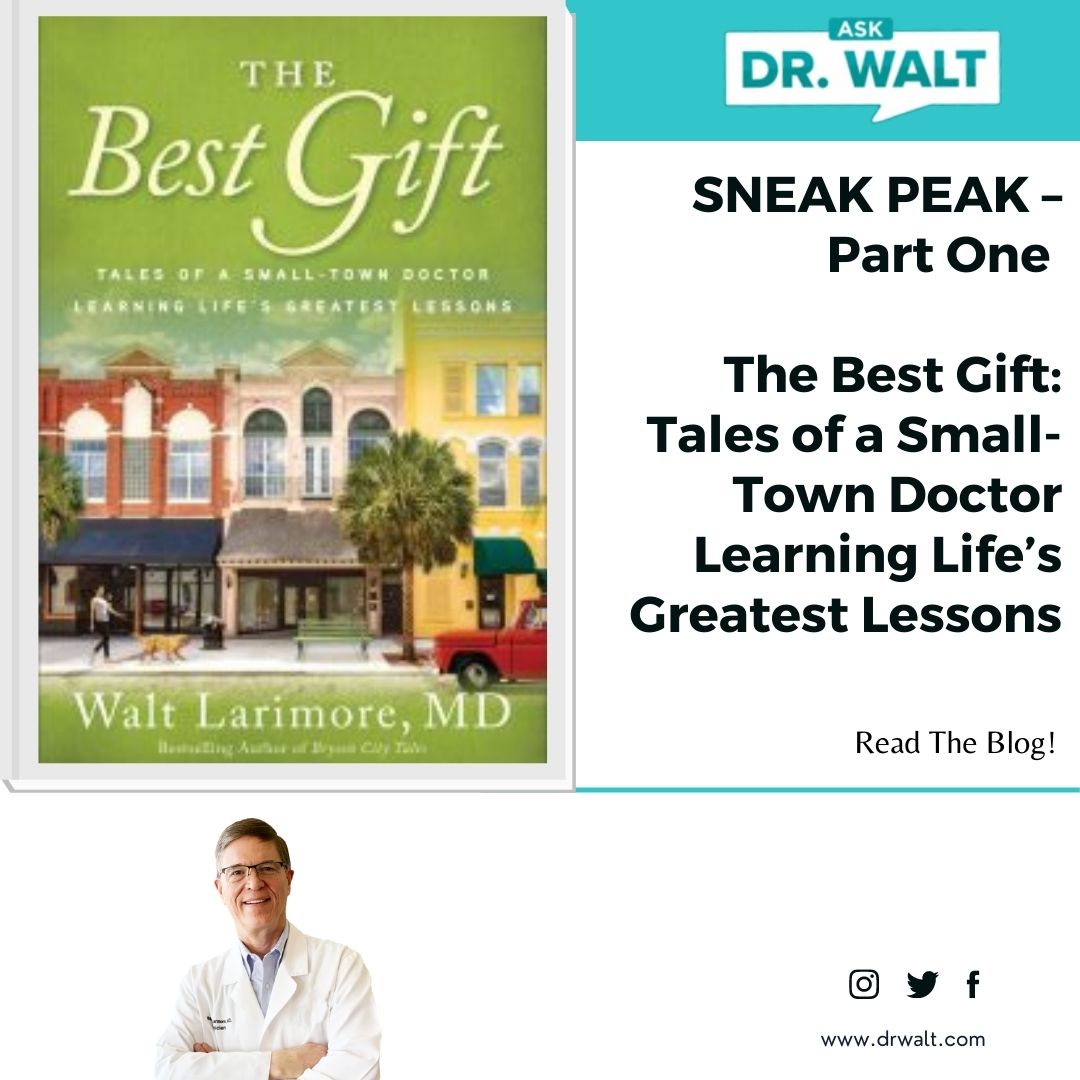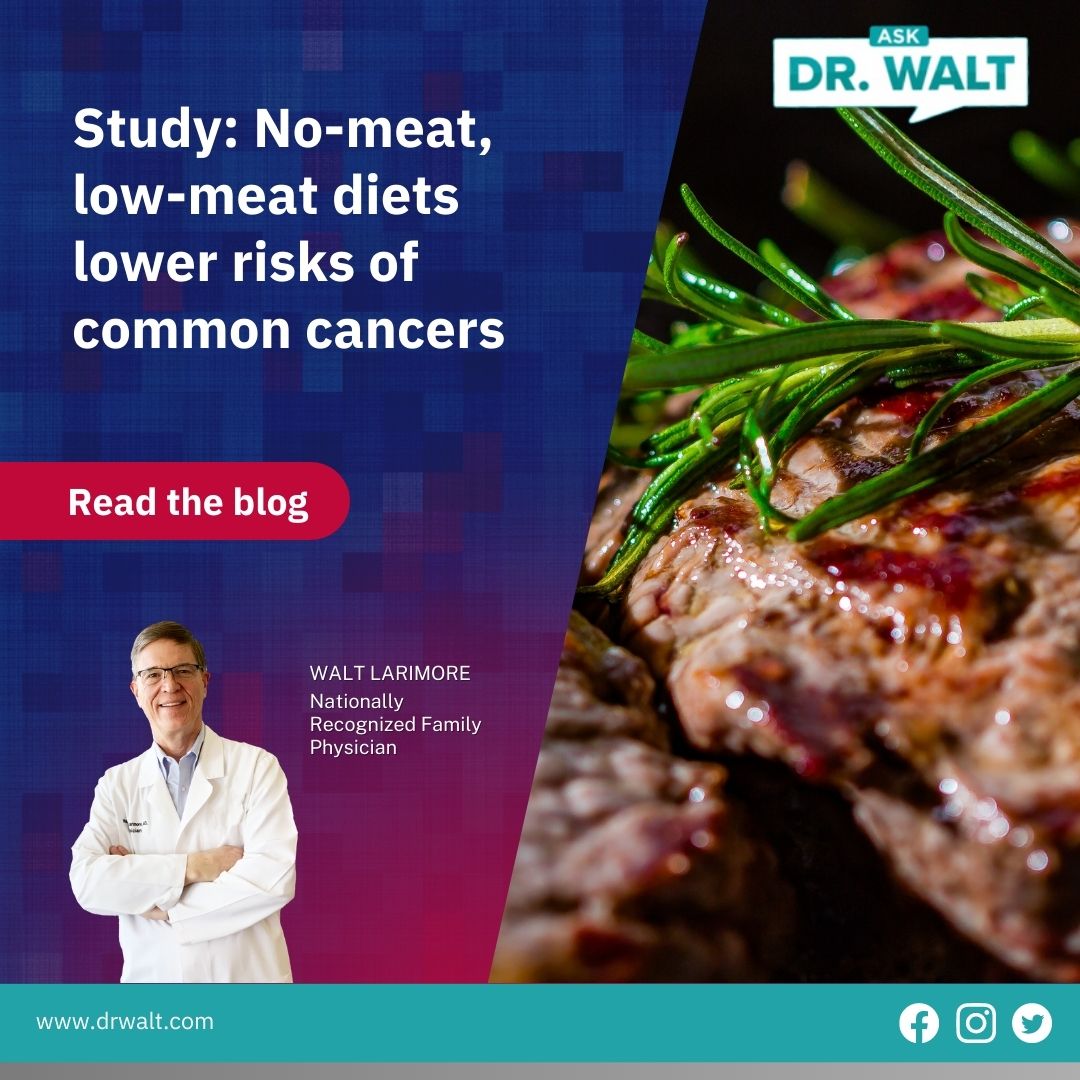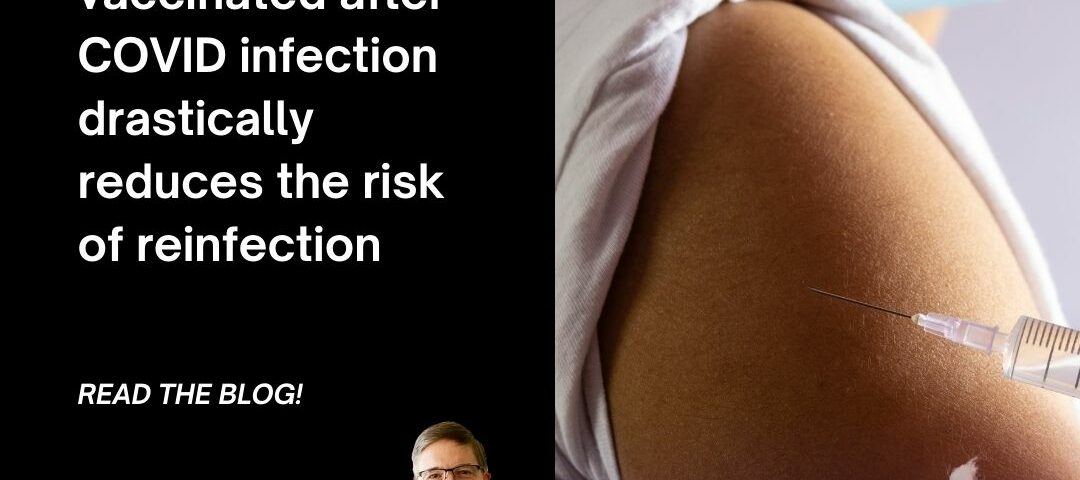
SNEAK PEAK – Part One – The Best Gift: Tales of a Small-Town Doctor Learning Life’s Greatest Lessons
March 6, 2022
Study: No-meat, low-meat diets lower risks of common cancers
March 8, 2022People with a history of COVID-19 who get vaccinated appear to have a dramatically reduced risk of future reinfection. Data from Israel published in the New England Journal of Medicine showed that among nearly 150,000 unvaccinated people (who had been infected with COVID at least 3 months earlier) getting at least one dose of the mRNA vaccine was associated with a dramatic
- 82% reduced risk of reinfection among those ages 16 to 64 and
- 60% reduced risk among those 65 and older compared to those who did not get vaccinated.
However, there was no difference in protection against reinfection between those who received only one dose and those who received two doses (Hammerman, N Engl J Med 2022).
Nevertheless, the CDC continues to recommend that two-dose vaccination series be offered to people regardless of history of prior COVID infection.
This blog was accurate as of the day of posting. However, as the COVID-19 pandemic rapidly evolves and the scientific community’s understanding of the novel coronavirus and the COVID vaccine develops, the information above may have changed since it was last updated. While I aim to keep all of my blogs on COVID and the COVID vaccine up to date, please visit online resources provided by the CDC, WHO, and your local public health department to stay informed on the latest news.
© Copyright WLL, INC. 2022. This blog provides a wide variety of general health information only and is not intended to be a substitute for professional medical advice, diagnosis, or treatment from your regular physician. If you are concerned about your health, take what you learn from this blog and meet with your personal doctor to discuss your concerns.



